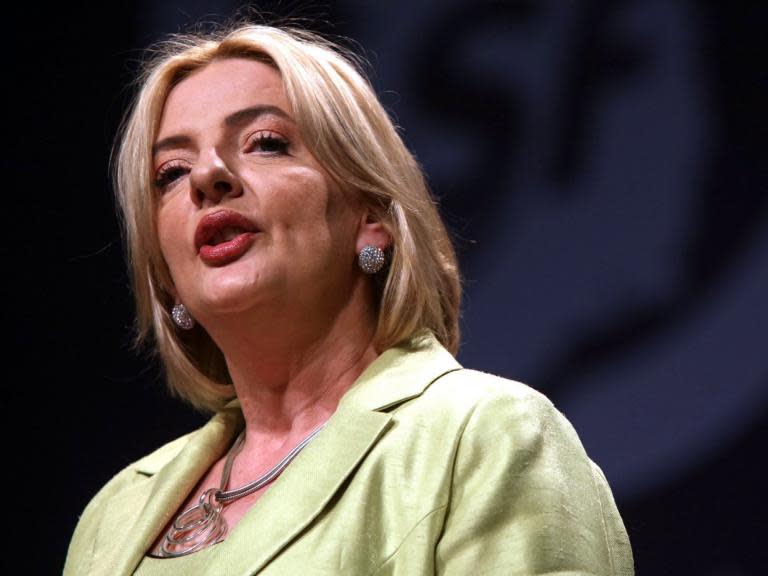Liadh Ní Riada: Sinn Féin MEP standing on unity platform in the Irish presidential election
Sinn Féin have announced that Liadh Ní Riada will be their candidate for the upcoming Irish presidential election.
The announcement of Ms Ní Riada was expected, after party leader Mary Lou McDonald suggested she wanted to see a female candidate contest the election.
She will face the incumbent Michael D Higgins, independent senator Joan Freeman and the businessman Sean Gallagher when Ireland goes to the polls on 26 October.
Ms Ní Riada has been a Member of the European Parliament for Ireland since 2014, and was previously Sinn Féin’s Irish language officer.
The daughter of famous Irish composer Sean O Riada, the Dublin-born mother-of-three came to politics after a career in television, where she served on the board which set up the Irish language television channel TG4.
A fluent speaker of the native language, she also directed and produced documentaries, and ran her own production company. A relatively fresh face for Sinn Féin, it’s believed she can represent the party’s key causes without carrying any of their Troubles-era baggage.
The party also considered Irish TD Caoimhghín Ó Caoláin and Belfast solicitor John Finucane, but ultimately Ms Ní Riada was decided upon as the best candidate for the presidency.
An in-depth interview Ní Riada gave to the Marian Finucane Show on RTE Radio 1 in July was a clear indication that the relatively unknown politician was being tested by the party in front of a national audience.
The interview was largely deemed a success, with Ní Riada laying out her ties to the cultural traditions and heritage of Ireland, and advocating for the country to work within the EU to effect results, instead of walking away as the UK has done.
She was challenged on how a Sinn Féin president would handle the delicate upcoming centenary commemorations of the war of independence, partition and the civil war, but she refused to be drawn. This may have served as a warning shot for some of the more difficult questioning she can expect in the upcoming contest.
In the interview, she also indicated that if she ran for president and was successful, that she would only serve one seven-year term.
The election on 26 October for the largely ceremonial office is expected to see popular incumbent Michael D Higgins returned for a second term, having earned the support of Fine Gael, Fianna Fail and Labour.
Sinn Féin have indicated they are happy with the job Higgins is going, but have decided to field a candidate to ensure he would not be re-elected unopposed.
At the last presidential election in 2011, Martin McGuinness was the Sinn Féin candidate, coming in third place with 13.7 per cent of the vote.
The party hopes to build on that vote this year, and to use the platform to voice wider national issues which often go undiscussed in general elections - namely, the growing prospect of a referendum on Irish unity, which may happen within the next president’s term.
But Sinn Féin is believed to be more focused on a serious run at the office in 2025, by which point they could be bolstered after a proposed referendum in 2019 on extending voting rights to the Irish diaspora.

 Yahoo News
Yahoo News 

